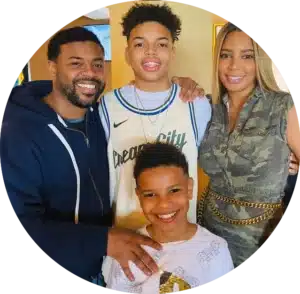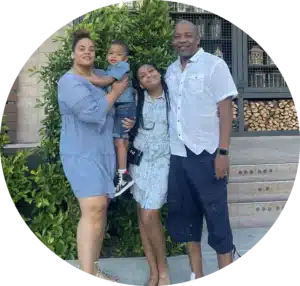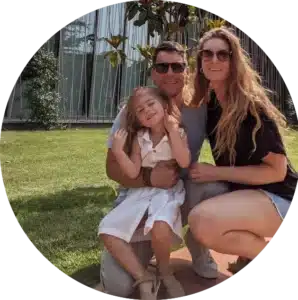Parenting Through Trauma: Helping Children Heal
Unlock Healing and Resilience: Parenting Through Trauma
Providing parents with the tools to support emotional growth, healing, and connection in children impacted by trauma.
Parenting a child who has experienced trauma can feel overwhelming, lonely, and full of uncertainty—but it can also be a pathway to deep transformation and connection. This course goes far beyond surface-level advice. It’s a comprehensive, expertly guided experience rooted in psychological depth and practical application, designed to support real change in your home and your relationship with your child.
Led by licensed psychologist Dr. Maya Bristow Klein, this course offers more than information—it’s a framework for healing. You’ll gain the insight, strategies, and emotional clarity to help your child recover, grow, and thrive, while also finding strength and steadiness within yourself.
You may have spent hours researching how to support your child, experimenting with different approaches, yet still feel:
- Confused by the effects of trauma on emotions and behavior
- Unsure how to identify signs of unresolved trauma in your child
- Overwhelmed by the challenges of breaking generational cycles
- In need of practical tools to foster emotional resilience and healing
At Pathformers, we’ve supported many families who felt exactly as you do now. That’s why we created the Parenting Through Trauma course series. It’s not just a class—it’s a companion in your journey toward understanding, connection, and lasting change.
Helping You Guide Your Child’s Growth - One Insight at a Time
We’ve broken down the complexities of personality development into a clear, practical roadmap so you can feel empowered—not overwhelmed—as you support your child’s growth.
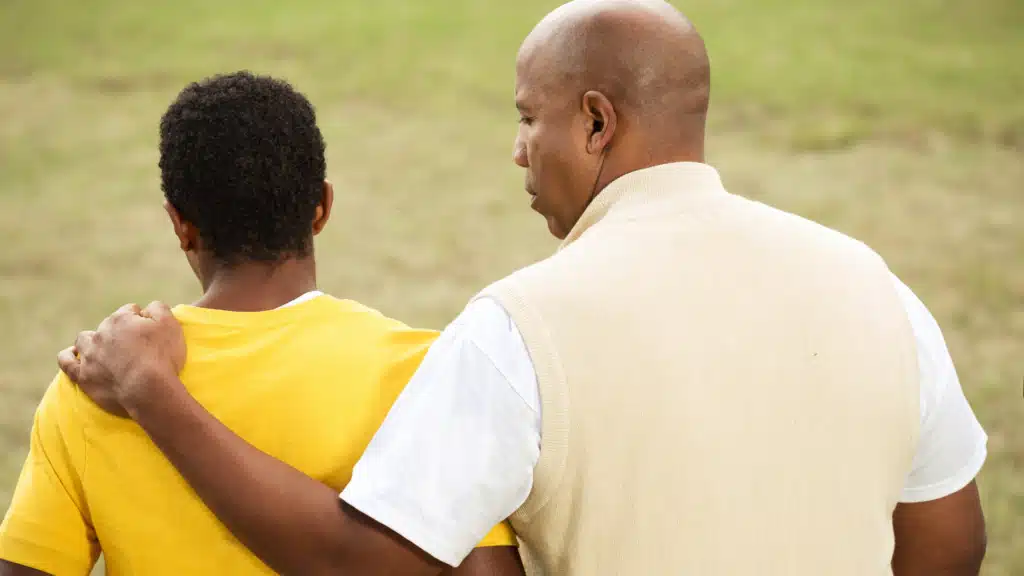
What You’ll Learn
Understanding Trauma in Children
Uncover the history and psychological underpinnings of trauma—what it is, how it manifests in children and adults, and why symptoms often speak louder than words. Learn about acute, chronic, and complex trauma, and how each shapes a child’s emotional world.
Recognizing Trauma’s Signs
Spot behaviors and physical symptoms that may point to unresolved trauma, including dissociation, anxiety, flashbacks, and depression. Discover how to respond when trauma surfaces in the classroom, during daily routines, or in unexpected emotional reactions.
Breaking Generational Patterns
Explore how your own childhood experiences may influence your parenting style. Learn how unresolved trauma shows up in behavior, and how to interrupt cycles of reenactment to foster healthier family dynamics.
Supporting Emotional Growth
Learn developmentally appropriate strategies for supporting your child through grief, loss, shame, and self-blame. Understand how to nurture emotional safety and help your child rebuild a positive sense of self.
Practical Tools for Trauma-Informed Parenting
Discover how to become a steady, regulating presence in your child’s life. From creating safe rhythms at home to validating feelings without retraumatizing, this course helps you respond with steadiness, structure, and care.
Taking Care of Yourself
Parenting through trauma requires emotional endurance. This course provides support for you—the caregiver—as you navigate burnout, guilt, and overwhelm. Learn to stay connected to your child without losing yourself.
Parents Like You Trust Pathformers
Inside the Course
Each module is grounded in clinical expertise and lived experience, featuring real-world examples, worksheets, and compassionate guidance:
Course Modules
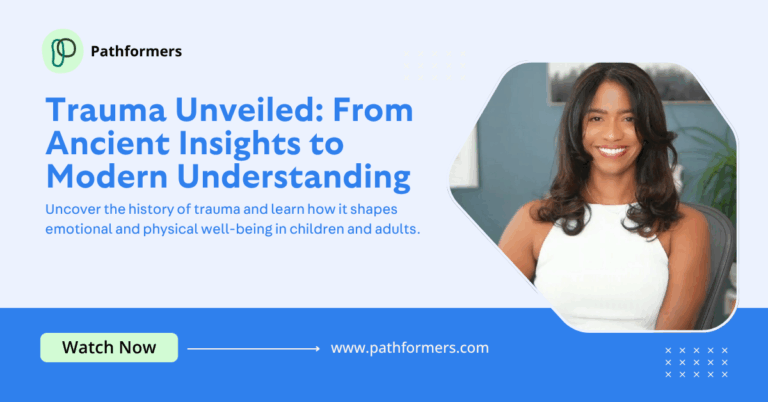
Trauma Unveiled: From Ancient Insights to Modern Understanding
Uncover the history of trauma and learn how it shapes emotional and physical well-being in children and adults.
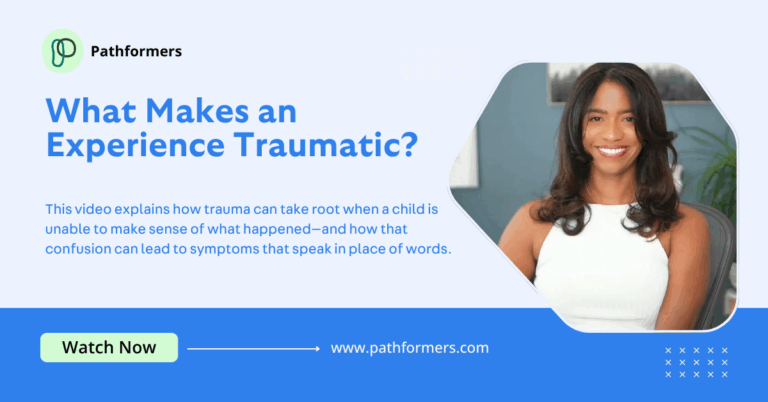
What Makes an Experience Traumatic?
This video explains how trauma can take root when a child is unable to make sense of what happened—and how that confusion can lead to symptoms that speak in place of words.
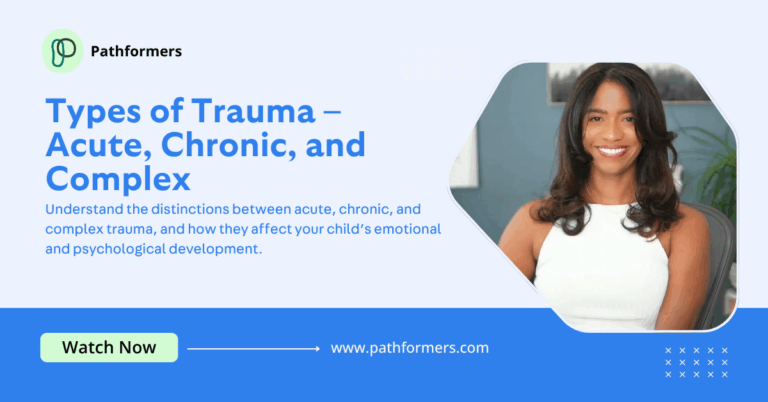
Types of Trauma: Acute, Chronic, and Complex
Understand the distinctions between acute, chronic, and complex trauma, and how they affect your child’s emotional and psychological development.
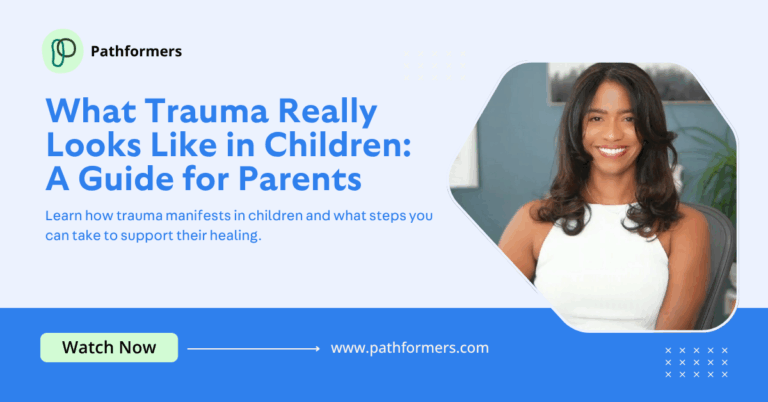
What Trauma Really Looks Like in Children: A Guide for Parents
Learn how trauma manifests in children and what steps you can take to support their healing.
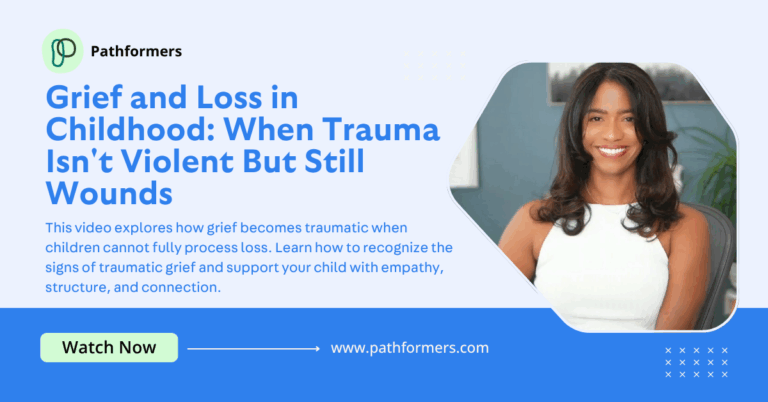
Grief and Loss in Childhood: When Trauma Isn’t Violent But Still Wounds
This video explores how grief becomes traumatic when children cannot fully process loss. Learn how to recognize the signs of traumatic grief and support your child with empathy, structure, and connection.
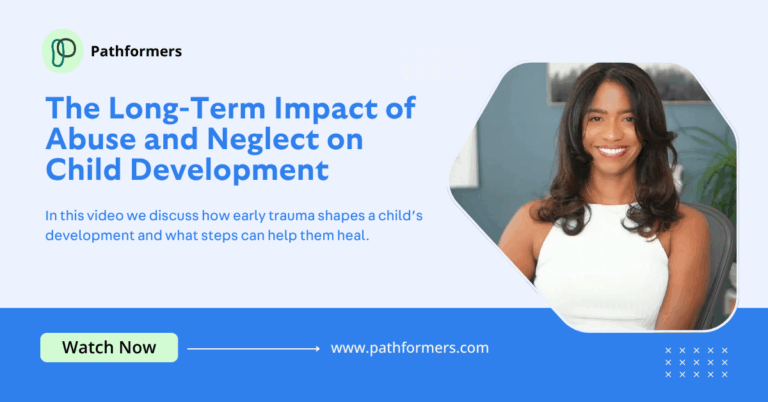
The Long-Term Impact of Abuse and Neglect on Child Development
In this video we discuss how early trauma shapes a child’s development and what steps can help them heal.
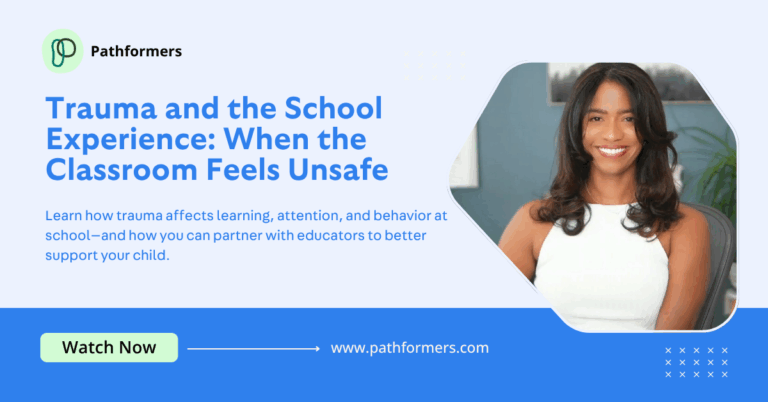
Trauma and the School Experience: When the Classroom Feels Unsafe
Learn how trauma affects learning, attention, and behavior at school—and how you can partner with educators to better support your child.

Understanding Dissociation and Flashbacks in Children
Your child zones out, can’t remember, or suddenly shuts down. This class helps you recognize dissociation and understand what’s happening inside—and how to offer support.
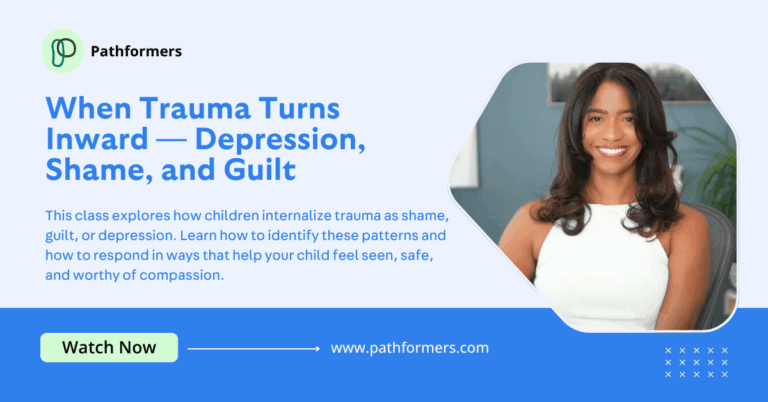
When Trauma Turns Inward – Depression, Shame, and Guilt
This class explores how children internalize trauma as shame, guilt, or depression. Learn how to identify these patterns and how to respond in ways that help your child feel seen, safe, and worthy of compassion.
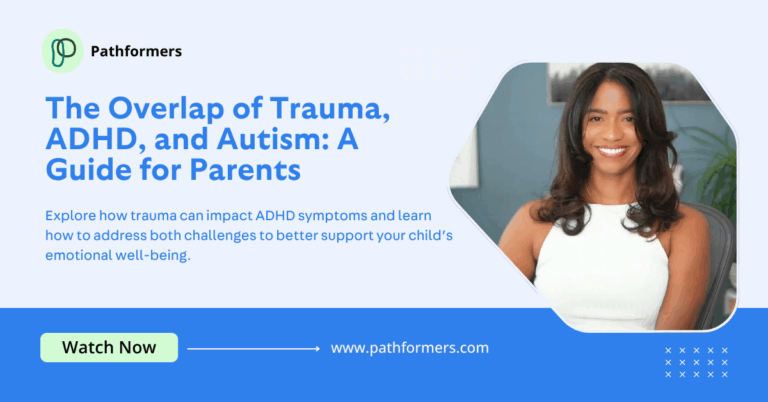
The Overlap of Trauma, ADHD, and Autism: A Guide for Parents
Explore how trauma can impact ADHD symptoms and learn how to address both challenges to better support your child’s emotional well-being.
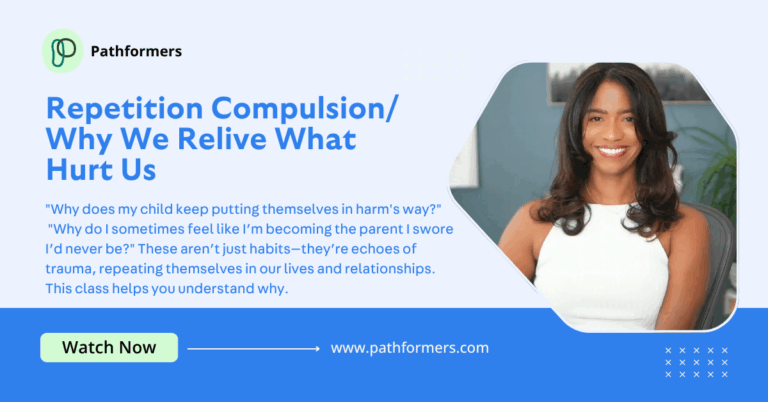
Repetition Compulsion: Why We Relive What Hurt Us
"Why does my child keep putting themselves in harm's way?" "Why do I sometimes feel like I’m becoming the parent I swore I’d never be?" These aren’t just habits—they’re echoes of trauma, repeating themselves in our lives and relationships. This class helps you understand why.
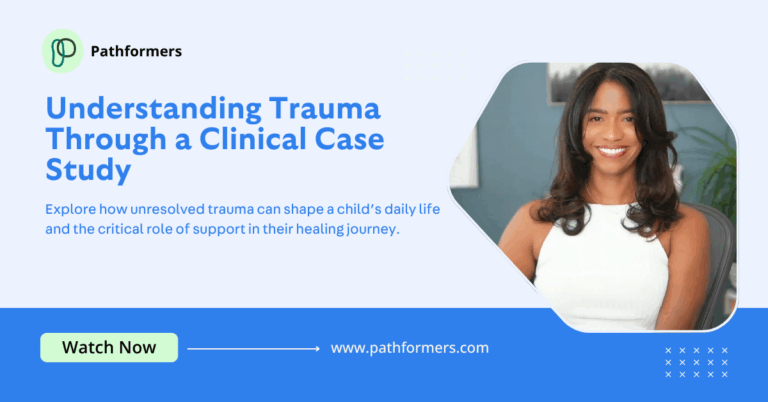
Understanding Trauma Through a Clinical Case Study
Explore how unresolved trauma can shape a child’s daily life and the critical role of support in their healing journey.
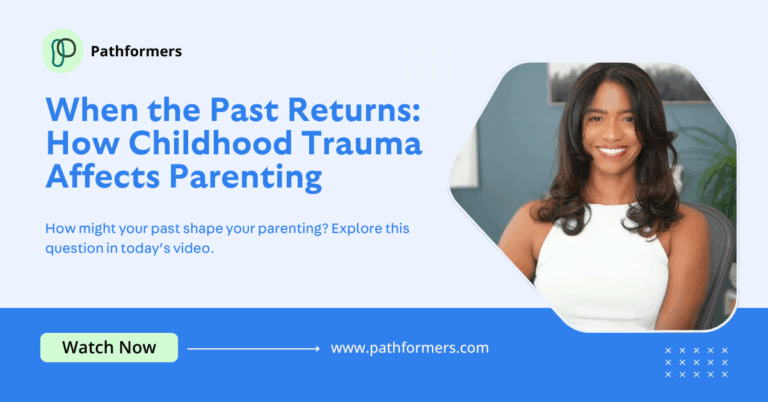
When the Past Returns: How Childhood Trauma Affects Parenting
How might your past shape your parenting? Explore this question in today’s video.

Healing the Past to Parent in the Present
Follow a mother’s journey of healing as she transforms her parenting by confronting her childhood trauma.
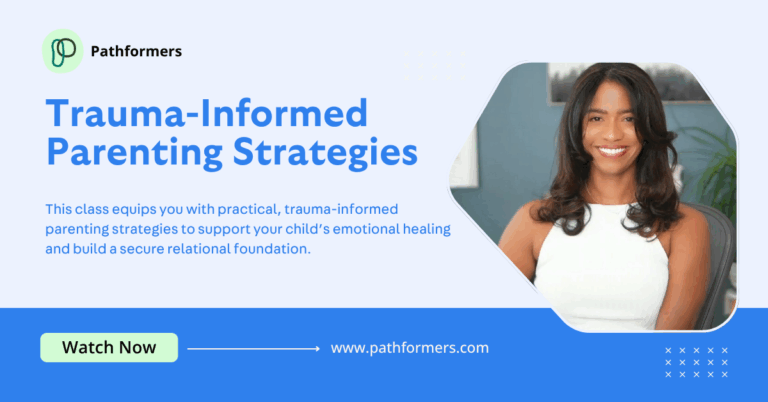
Trauma Informed Parenting Strategies
This class equips you with practical, trauma-informed parenting strategies to support your child’s emotional healing and build a secure relational foundation.
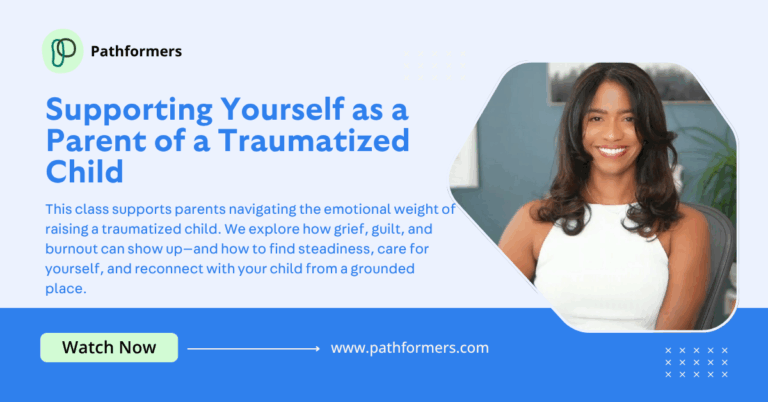
Supporting Yourself as a Parent of a Traumatized Child
This class supports parents navigating the emotional weight of raising a traumatized child. We explore how grief, guilt, and burnout can show up—and how to find steadiness, care for yourself, and reconnect with your child from a grounded place.
Frequently Asked Questions
What will I learn from this course?
You’ll gain a comprehensive understanding of trauma, how it affects your child, and what you can do to support healing. You’ll also receive tools to strengthen your family’s emotional resilience.
Who is this course for?
Parents, caregivers, and anyone supporting a child affected by trauma—including those addressing their own past in the process.
How can I tell if my child is experiencing trauma?
This course helps you identify trauma-related behaviors, understand their root causes, and determine when professional support may be helpful.
What if I feel overwhelmed or unsure about how to help?
That’s exactly what this course addresses. You’ll learn how to support your child while also taking care of your own emotional health.
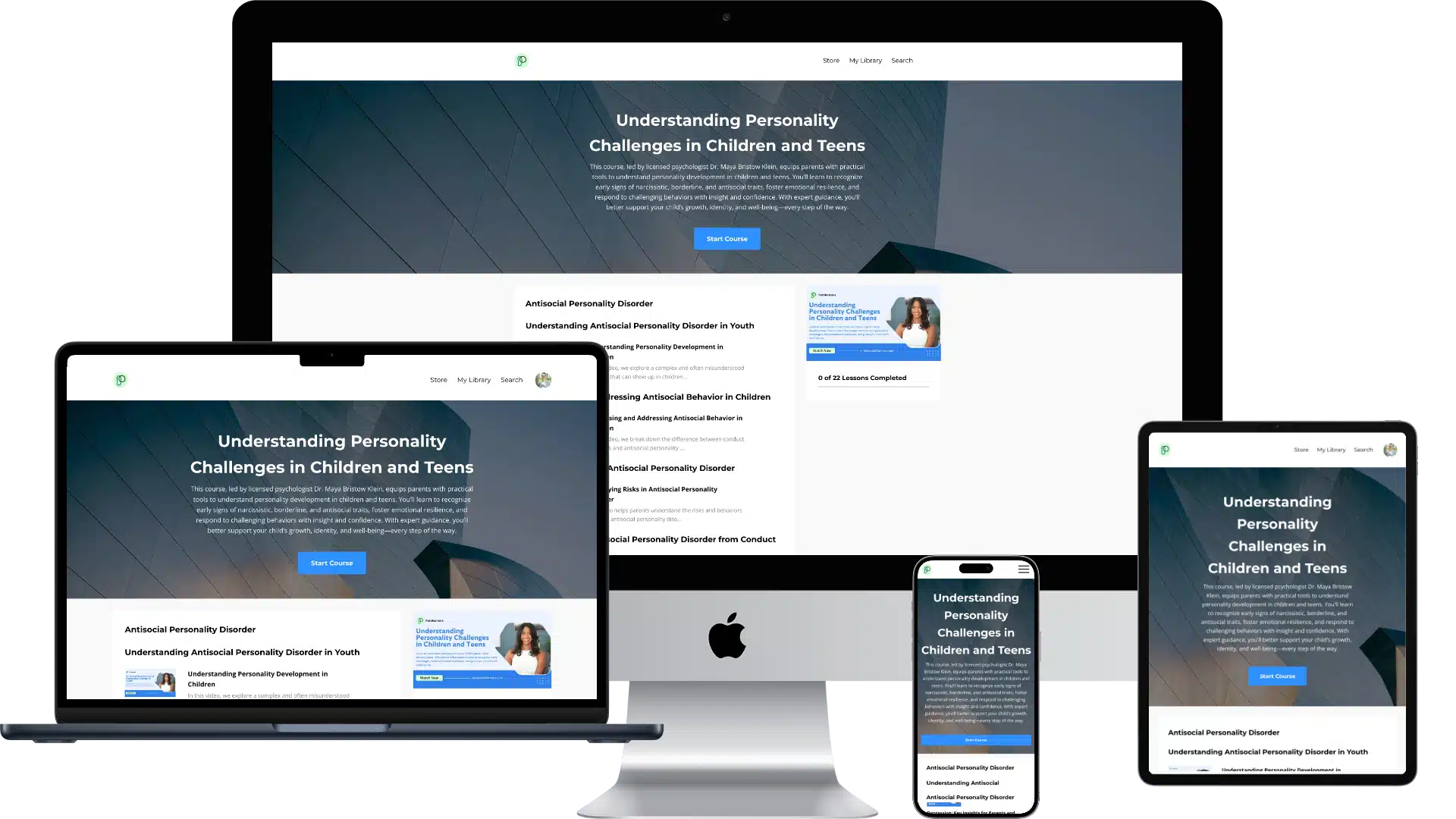
Empowering Parents, Strengthening Families
Join a research-informed, expert-led course designed to help you understand trauma, connect with your child, and build a stronger, healthier family foundation. Your journey toward healing starts here.

